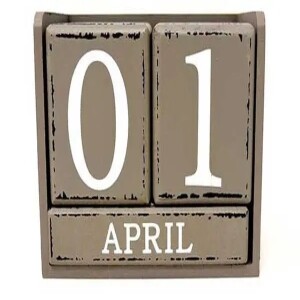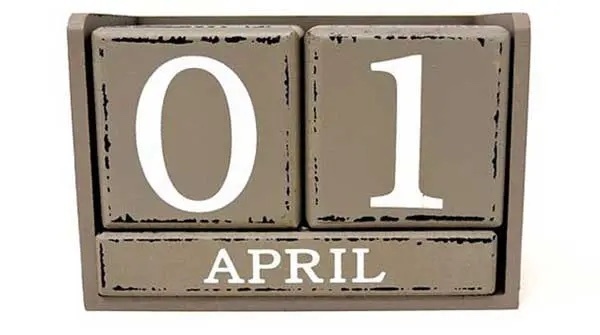Episodes

Sunday Mar 31, 2024
TC181: Unraveling the Enigma of April Fools’ Day
Sunday Mar 31, 2024
Sunday Mar 31, 2024

[08:35] April Fools’ Day – April 1st, is an extension of a centuries-old tradition to entertain and trick, – or is it? In today's episode we unravel this annual enigma that today we call April Fools’ Day.
This is the audio from the article published at Troy Media & Gadgetgreg.Com. The text, while not exactly a transcript is below:
Here's the Article:
In the modern era, we find ourselves ever vigilant on April 1st, wary of pranks, hoaxes, and fake news. Yet, these antics have roots that delve deep into the past, to a time when court jesters were commonplace and laughter was the order of the day.
Long before the advent of television, movies, or the Internet, jesters, jokers, and fools roamed the land, captivating audiences with their quick wit and comedic talents. Originating in the Medieval and Renaissance periods, these entertainers often began their careers as nomads – performers, traveling from town to town, accompanied by minstrels, and regaling crowds at fairs and markets with their humorous tales.
However, it was those jesters who found favor in the courts of monarchs and noblemen who truly rose to prominence. These quick-witted individuals became valued members of the household staff, their jests serving as a welcome reprieve from the rigors of royal life.
But competition was fierce, the court jester being the career pinnacle for a talented few. Successful candidates could rise above the simple nomadic existence, entertaining peasants living in poverty surrounded by disease and filth. Their new life would be to entertain a captive audience, and enjoy stability, shelter and more to eat in one meal than others had in a week.
No doubt, everyone wanted the top job, but the supply of fools always exceeded the demand. There were no employment agencies and Monster.com was still almost 5 centuries away.
To get the attention of potential employers, jesters would take any opportunity to perform in front of the wealthy – not unlike what the paparazzi do to celebrities today.
Except you can’t behead a paparazzo, as King Henry VIII did to one fool on New Year’s Eve 1544 outside the Palace of Whitehall in London. In fact, in that era, beheadings were as common as weddings and banquets. Despite being warned, this fool pushed the monarch too far.
That night, as Henry’s temper flared, even the king’s personal jester, Will Sommers, couldn’t amuse the angry monarch. According to Sommers’ diary and stories passed down over the centuries, the ongoing commotion and Henry’s drunken rants marred the evening, with the king threatening to cast away the ships of fools and behead each and every one of the jesters.
Sommers had been serving the king for years and had become his friend, confidante and earning his trust.
Legend has it that when asked why, in all that time he didn’t fear the king’s wrath, Sommers replied, “Why should I fear a man who couldn’t keep a wife?”
At the risk of his job, and perhaps his life, he tried to convince the king that serial execution of fools wasn’t in his majesty’s best interest. Perhaps Sommers made the appeal for selfish reasons, coming from a family of fools. He attempted to convince the king that he needed to laugh, that all people need to laugh in tough times. Henry had just buried yet another wife, Catherine of Aragon, so his temperament was certainly suspect.
Failing to make an impression, Sommers eloquently reminded the king of their first meeting and how he had made a life-changing impression on his majesty. His words struck a chord with Henry, eliciting a rare smile from the monarch.
With the Kings fiery temper subsiding, for now, Sommers confessed he had concerns about his own longevity. Sensing an opportunity to diffuse the tension, instead of waiting for his demise – natural cause or otherwise, Sommers proposed a novel solution—a grand audition, if the king so wished. This could uncover fresh talent for the court, sparing his fellow jesters from further retribution, i.e., the ultimate job dismissal.
Henry, intrigued by the idea, granted Sommers full authority to organize the auditions, scheduling them promptly upon his return from Versailles on April 1st.
The auditions proved a resounding success, with laughter echoing through the halls of the palace like never before.
Henry was so delighted by the spectacle and thrilled by the outcome of finding a suitable successor for Sommers, he declared April 1, as the “annual Night of Fools,” as a testament to the enduring legacy of jesters in his court.
The King would only enjoy a few of these events since he died in 1547, just three years later.
Sommers outlived his master, carrying on Henry's tradition, honoring his legacy, and entertaining Queen Elizabeth I until his passing in 1560 – of natural causes.
In the years that followed, the tradition progressed, taking on new significance and acquiring yet a new name. In 1582, the Day of Fools was officially christened April Fools’ Day, aligning with the introduction of the Gregorian calendar by Pope Gregory XIII. This change, while seemingly minor, served to solidify the holiday's place in the calendar and cement its enduring legacy.
April Fools’ Day continues to evolve, adapting to the changing times and embracing new forms of humor and mischief. Today, people across the globe eagerly anticipate the arrival of April 1st, eager to partake in the age-old tradition of pranks and practical.
So, today as we celebrate April Fools’ Day, let us pause to reflect on the origins of this beloved tradition and the jesters who helped shape it. And if you find yourself on the receiving end of a prank, - like this one, remember to laugh along—it’s all part of the fun!
April Fool!
This is an updated version of the podcast originally released as episode 80. Toastcaster 80 The Origin of April Fool's Day.


No comments yet. Be the first to say something!